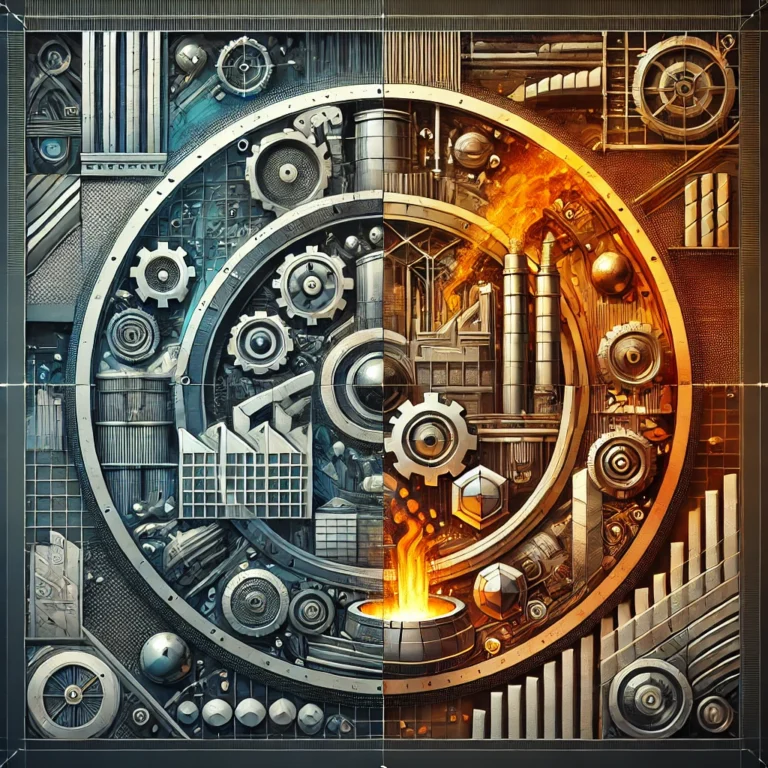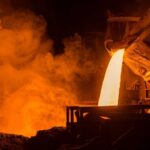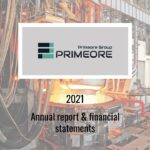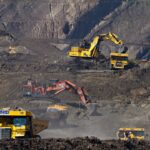Market review 07-11.10.2024

Katowice, Poland – December 13, 2024
** Romanian Steel Plant Cuts Production **
The Romanian steel plant ArcelorMittal Hunedoara, a subsidiary of the global steel producer ArcelorMittal, announced a production cut from December 9 until the end of the year due to a lack of orders. The company explained this decision as a result of economic difficulties caused by a decline in demand for its products.
Source: Bucharest Stork Exchange
** Rising Energy Prices in the EU **
In November 2024, the average wholesale prices for electricity in the EU significantly increased compared to the previous month. The start of the winter season with low temperatures led to a rise in demand. Additionally, during this period, gas prices increased substantially, creating tension in the continent’s energy market.
Source: https://ember-energy.org/
** German Chancellor Pledges Support for Steel Industry **
German Chancellor Olaf Scholz pledged support for Germany’s steel industry, particularly in view of high energy costs, as reported by Handelsblatt.
According to him, the metallurgical industry is indispensable for Germany, being one of the largest employers, and the steel produced in the country has geostrategic importance for the industrial sector and, consequently, for the economic growth of the state.
The Chancellor noted that the government would continue to support investments in the transition to green steel production with future funding. He also proposed limiting fees for electricity network usage and stated that the federal government aims to finance part of the electricity transmission costs.
The Chancellor intends to work at the EU level to strengthen the steel industry. He advocates for fairer international framework conditions and the organization of a European steel summit in the near future.
Source: https://www.handelsblatt.com/
** Call for European Steel Summit **
The European Steel Association (EUROFER) and the IndustriAll trade union are calling on the European Commission to hold a European Steel Summit early next year. This is stated in a joint letter from the organizations to European Commission President Ursula von der Leyen and Executive Vice President for Industrial Strategy, Stefan Sejourne.
The urgent meeting aims to discuss a number of critical issues and an action plan for the steel industry.
The letter highlights that the EU steel sector has already been affected by a prolonged energy and raw material crisis. Additionally, around 100 million tons of Chinese steel sold at dumping prices have flooded key markets. However, the problem is not limited to China, as South Asia, the Middle East, India, and Japan are shifting their focus to the EU, reducing global steel prices and threatening the survival of the sector and investments in the “green” transition.
The current EU trade defense instruments (TDI) remain important but are, unfortunately, insufficient to combat the global excess capacity. In addition to strengthening existing TDIs, social partners in the sector are calling for short-term emergency measures and a new comprehensive trade initiative from the bloc as a matter of urgency.
Source: https://www.eurofer.eu
** UK Secretary of State Pledges Support for Steel Industry **
UK Secretary of State for Business, Jonathan Reynolds, confirmed the government’s commitment to support the steel industry during the parliamentary summit “Shaping a Strategy for Steel.” This was reported in a press release from Tata Steel UK.
The event, organized by UK Steel, brought together officials, industry leaders, and trade unions to discuss the future of the steel sector.
In his speech, Reynolds emphasized the importance of steel for the modern economy, noting that the country significantly lags behind other G7 nations in terms of efficiency in this area. He stressed that the government is committed to changing the situation by investing in new technologies and low-carbon production processes.
Among other measures, addressing high energy costs and combating global competition are on the agenda. The government will support the cross-border carbon adjustment mechanism (CBAM) and will respond to unfair competition in the international market. Reynolds called on all stakeholders to cooperate in making this a turning point for the UK steel industry.
Source: https://www.tatasteeluk.com
** Threats to the EU Steel Sector from CBAM and Quota System **
The cross-border carbon adjustment mechanism (CBAM) and the quota system pose threats to the EU steel industry. This opinion was expressed by Paolo Sangoi, President of the Italian Association of Scrap, Raw Materials, and Steel Distributors (Assofermet), during the SteelOrbis steel conference.
According to him, while aggressive exports from China and events in the Middle East create uncertainty, the renewable energy sector has found strong support due to decarbonization efforts.
However, if CBAM is not eased, there is a serious threat to sectors that have historically been the largest consumers of steel, such as the automotive industry, construction, mechanical engineering, and household appliances. In particular, the automotive sector is showing a 40% decline in steel consumption this year.
Regarding potential tariffs from the Trump administration, the Assofermet President believes that the EU will apply countermeasures, but such a situation would affect the availability of raw materials. Steel producers may suspend production due to reduced profitability, which would keep prices for metal products stable over the next two quarters.
Nevertheless, Sangoi is convinced that aggressive measures, such as protective quotas, weaken the steel sector. Furthermore, he argues that support should be provided to the processing industry, not just metallurgy.
Source: https://www.steelorbis.com
** European Commission to Consider Extending Steel Import Restrictions **
The European Commission (EC) will consider the possibility of extending measures to limit steel imports as part of a general plan to protect the sector during its decarbonization process. This was announced by Executive Vice President of the EC, Stefan Sejourne, according to Reuters.
During a visit to the ArcelorMittal plant in Ghent (Belgium), Sejourne, who is responsible for the EU’s industrial policy, stated that at the beginning of his mandate, his priority would be a plan for steel and other metals. It will aim to reduce high energy costs and protect against Chinese overcapacity at a time when European steelmakers are reducing carbon emissions.
Source: https://www.reuters.com
** Romanian Steel Plant Cuts Production **
The Romanian steel plant ArcelorMittal Hunedoara, a subsidiary of the global steel producer ArcelorMittal, announced a production cut from December 9 until the end of the year due to a lack of orders. The company explained this decision as a result of economic difficulties caused by a decline in demand for its products.
Source: Bucharest Stork Exchange
** Rising Energy Prices in the EU **
In November 2024, the average wholesale prices for electricity in the EU significantly increased compared to the previous month. The start of the winter season with low temperatures led to a rise in demand. Additionally, during this period, gas prices increased substantially, creating tension in the continent’s energy market.
Source: https://ember-energy.org/
** German Chancellor Pledges Support for Steel Industry **
German Chancellor Olaf Scholz pledged support for Germany’s steel industry, particularly in view of high energy costs, as reported by Handelsblatt.
According to him, the metallurgical industry is indispensable for Germany, being one of the largest employers, and the steel produced in the country has geostrategic importance for the industrial sector and, consequently, for the economic growth of the state.
The Chancellor noted that the government would continue to support investments in the transition to green steel production with future funding. He also proposed limiting fees for electricity network usage and stated that the federal government aims to finance part of the electricity transmission costs.
The Chancellor intends to work at the EU level to strengthen the steel industry. He advocates for fairer international framework conditions and the organization of a European steel summit in the near future.
Source: https://www.handelsblatt.com/
** Call for European Steel Summit **
The European Steel Association (EUROFER) and the IndustriAll trade union are calling on the European Commission to hold a European Steel Summit early next year. This is stated in a joint letter from the organizations to European Commission President Ursula von der Leyen and Executive Vice President for Industrial Strategy, Stefan Sejourne.
The urgent meeting aims to discuss a number of critical issues and an action plan for the steel industry.
The letter highlights that the EU steel sector has already been affected by a prolonged energy and raw material crisis. Additionally, around 100 million tons of Chinese steel sold at dumping prices have flooded key markets. However, the problem is not limited to China, as South Asia, the Middle East, India, and Japan are shifting their focus to the EU, reducing global steel prices and threatening the survival of the sector and investments in the “green” transition.
The current EU trade defense instruments (TDI) remain important but are, unfortunately, insufficient to combat the global excess capacity. In addition to strengthening existing TDIs, social partners in the sector are calling for short-term emergency measures and a new comprehensive trade initiative from the bloc as a matter of urgency.
Source: https://www.eurofer.eu
** UK Secretary of State Pledges Support for Steel Industry **
UK Secretary of State for Business, Jonathan Reynolds, confirmed the government’s commitment to support the steel industry during the parliamentary summit “Shaping a Strategy for Steel.” This was reported in a press release from Tata Steel UK.
The event, organized by UK Steel, brought together officials, industry leaders, and trade unions to discuss the future of the steel sector.
In his speech, Reynolds emphasized the importance of steel for the modern economy, noting that the country significantly lags behind other G7 nations in terms of efficiency in this area. He stressed that the government is committed to changing the situation by investing in new technologies and low-carbon production processes.
Among other measures, addressing high energy costs and combating global competition are on the agenda. The government will support the cross-border carbon adjustment mechanism (CBAM) and will respond to unfair competition in the international market. Reynolds called on all stakeholders to cooperate in making this a turning point for the UK steel industry.
Source: https://www.tatasteeluk.com
** Threats to the EU Steel Sector from CBAM and Quota System **
The cross-border carbon adjustment mechanism (CBAM) and the quota system pose threats to the EU steel industry. This opinion was expressed by Paolo Sangoi, President of the Italian Association of Scrap, Raw Materials, and Steel Distributors (Assofermet), during the SteelOrbis steel conference.
According to him, while aggressive exports from China and events in the Middle East create uncertainty, the renewable energy sector has found strong support due to decarbonization efforts.
However, if CBAM is not eased, there is a serious threat to sectors that have historically been the largest consumers of steel, such as the automotive industry, construction, mechanical engineering, and household appliances. In particular, the automotive sector is showing a 40% decline in steel consumption this year.
Regarding potential tariffs from the Trump administration, the Assofermet President believes that the EU will apply countermeasures, but such a situation would affect the availability of raw materials. Steel producers may suspend production due to reduced profitability, which would keep prices for metal products stable over the next two quarters.
Nevertheless, Sangoi is convinced that aggressive measures, such as protective quotas, weaken the steel sector. Furthermore, he argues that support should be provided to the processing industry, not just metallurgy.
Source: https://www.steelorbis.com
** European Commission to Consider Extending Steel Import Restrictions **
The European Commission (EC) will consider the possibility of extending measures to limit steel imports as part of a general plan to protect the sector during its decarbonization process. This was announced by Executive Vice President of the EC, Stefan Sejourne, according to Reuters.
During a visit to the ArcelorMittal plant in Ghent (Belgium), Sejourne, who is responsible for the EU’s industrial policy, stated that at the beginning of his mandate, his priority would be a plan for steel and other metals. It will aim to reduce high energy costs and protect against Chinese overcapacity at a time when European steelmakers are reducing carbon emissions.
Source: https://www.reuters.com
Primeore Trading (Polska) Sp. z o.o. is a trading arm of Primeore Ltd. which is responsible for handling of all international trading and trading-related operations of the group. The company is involved into operations with manganese ore, ferroalloys, coke and coal products worldwide.
Media contacts
For further information please contact office.poland@primeore.eu


